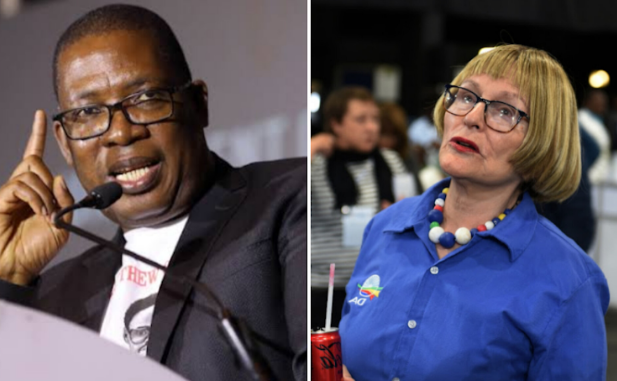In the politically charged atmosphere of Gauteng, the African National Congress (ANC) is facing significant opposition from the Democratic Alliance (DA), led by its federal council chair, Helen Zille.
This clash has been amplified following the removal of Cilliers Brink as the Mayor of Tshwane, which occurred after a successful motion of no confidence, propelled by the ANC and supported by the ActionSA and other smaller parties.
The ANC’s Firm Stance
Premier Panyaza Lesufi has stepped into the fray, defending the ANC’s provincial leadership and its decision-making process regarding Brink’s dismissal.
YOU MAY ALSO LIKE: Lesufi Sets The Record Straight: “Gwamanda Is Not An ANC Mayor”
Lesufi highlighted that the decision to support the motion of no confidence was sanctioned by the ANC’s national working committee, firmly dismissing Zille’s criticisms as merely propaganda. “No amount of propaganda and misuse of media houses will change that narrative,” Lesufi stated, emphasizing the unity of the ANC despite external pressures.
Future Implications for Governance
The political dynamics in Gauteng have shown a notable shift following the DA’s exclusion from the government of provincial unity. This exclusion followed talks that collapsed in July, a decision Lesufi reiterated was made by the ANC’s national leadership.
His remarks signify a commitment to upholding the party’s autonomy and rejecting any notion that they could be influenced or directed by the DA. Lesufi’s assertion that the ANC is indivisible illustrates the party’s determination to navigate these tumultuous political waters independently.
In the ongoing discourse surrounding governance in Gauteng, both parties seem locked in a struggle that not only defines their internal policies but also the broader political landscape of the region.










